Bonnie Brown
Bonnie Brown: Q&A with Dr. H. Joseph Byrd
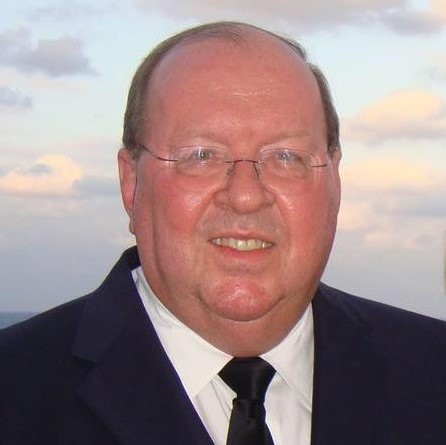
The latest interview in the Ole Miss Retirees features is Dr. H. Joseph Byrd. The organization’s mission is to enable all of the university’s faculty and staff retirees to maintain and promote a close association with the university. It is the goal of the Ole Miss Faculty/Staff Retirees Association to maintain communication by providing opportunities to attend and participate in events and presentations.

Dr. Byrd has spent his entire career tirelessly promoting pharmacy education. He was heavily invested early in the development of the clinical pharmacy program. His significant achievements became the accomplishments of the practitioners, educators, and students.
Brown: I know you are a native of Biloxi. Tell us about your growing up in Biloxi.
Byrd: I was born on the eastern extremity of Biloxi, which locals refer to as, “The Point”, officially Point Cadet. Our house was a four-room structure with an “outhouse” facility and No. 5 washtub for bathing. The community was composed of ethnic groups from Croatia, Poland, Acadia, and France, later Vietnamese, all primarily engaged in the seafood industry.
Our house, circa 1907, I guess you would say was a “tough old bird” (no pun) having survived 5 or 6 major hurricanes, including one shortly after I was born, then Camille in 1969 and Katrina in 2005.
I was told our house served as the dance hall for the community in the early 1900’s. Modest accommodations at the time, probably substandard today.
Brown: What are some of the differences between present-day Biloxi and the Biloxi of your childhood?
Byrd: Two things changed Biloxi. One, the introduction of legalized gambling in Mississippi in the 1990’s and two, the destruction by hurricanes, primarily Camille and Katrina.
The population of Biloxi has increased only modestly to just a little over 46,000 residents. Each time a hurricane makes landfall, it seems to make more cleared area for casinos. They rebuild and expand. Money is not an issue. Revenue from the eight casinos is in the millions.
The Point as an entity really no longer exists as it once did. You would be hard pressed to find a seafood factory or shrimp boat on the front beach. At the turn of the century Biloxi had become the Seafood Capital of the World. In the 1920s there were more than 40 seafood factories occupying the two cannery districts.
Brown: Please talk about your parents, siblings, and any crazy aunts or uncles:
Byrd: My parents were hard-working folks. My dad worked in civil service at Keesler Field and made a modest living. My mother worked briefly in sales at a variety store, but mainly ironed shirts for folks in the neighborhood. She charged 20 cents per shirt and that is how she supported my sister and me in private high schools and me in college. My dad became active in Boy Scouts and remained so until his death.
My sister passed away last year but did marry and had two children. She and her husband and children remained on the coast.
I had a number of aunts and uncles who I enjoyed, primarily the Alexander’s on my mother’s side. One of my favorites was my Aunt Carman from Addis, Louisiana. She and I would go round and round and she would always say, “Joe Byrd, that mouth of yours is going to get you in trouble.” Well, it has, but it also has gotten me ahead on occasion.
Brown: What’s the most important lesson you learned from your parents?
Byrd: Discipline!!!! My entire family will attest I learned discipline because they handed out discipline when I strayed from the path.
Hard work, determination, and support for my interests.
My dad got involved in Scouts and his work affected a lot of boys. My mother worked hard to get us the best education.
Brown: Where did you go to school?
Byrd: Well, I began with Holy Angels Kindergarten, St. Michael’s Elementary, Notre Dame High School, then on to college at Loyola University, University of Mississippi and Philadelphia College of Pharmacy and Science.
Highlights are many but I remember a few. My first day of elementary school, I decided to walk home. It was only 6 blocks, but I learned a great lesson on discipline and listening to parents. I never did that again! At the completion of high school, I received a scholarship to go to either Loyola University in New Orleans or Notre Dame. Loyola had a pharmacy school and Notre Dame did not. After two years at Loyola, the School of Pharmacy closed, and I transferred to Ole Miss. I remember walking into Dean Hartman’s office and telling him I needed a place to go. He took me in, something that would be unheard of today.
After graduating with a B.S. in Pharmacy, I enrolled in the Master of Science in Hospital Pharmacy Administration at the University of Mississippi. To complete the degree, I had to complete a residency, so I chose Jefferson Medical College Hospital in Philadelphia, PA. About midway of my residency, I was convinced to enroll in the Doctor of Pharmacy program at Philadelphia College of Pharmacy. It was a long route to a superb education.
Brown: Talk about your high school experience. Did you play sports, join clubs? What was your favorite/least favorite subject?
Byrd: It was pretty normal, Key Club and a few other clubs.
I did letter in track two years and I was second in the state B-BB track meet in the 120-yard-high hurdles. Sounds great but it turned out I was the only one who was brave enough to run hurdles—they were made of 2 by 4 lumber. I guess all the other contestants were more interested in getting married and having families.
A highlight was the Jesuit scholarship to Loyola. I was interviewed on WLOX TV by a morning reporter who asked if I had any wisdom for other students. I thought, hell woman, I am 17 years old and still maturing. I gave her some answers which she accepted, I guess. My favorite subject was Latin.
Brown: Did you have a curfew?
Byrd: Not really but my mother kept a pretty tight leash on me, and I had enough sense to not stay too late anywhere.
The leash was so tight through high school, I told my grandkids the first thing I did when I got to Loyola in New Orleans was get a pack of Winston cigarettes and a Tom Collins!
Brown: What was your very first job, perhaps as a teen, and what were your responsibilities and pay? What did you learn from that experience?
Byrd: My first job was delivering TV guides to families on my street. I used my bicycle and I cleared about 12 cents per copy.
Later in high school, I worked at a hardware store on the east end. Lot of do-it-yourself, and I learned a whole lot about nails, plumbing, screws, bolts, etc. I don’t remember the pay, but I do know I welcomed the opportunity. I met a lot of good people and learned how to interact with the public.
Brown: What advice would you give to your 20-year old self?
Byrd: Live life a little slower. Couple of decisions I would like to do over.
Spend more time with my family, especially my sister. I essentially left home when I was 17 years old and from 1963-1971, I was away from home. I had phone contact, but I missed being with them. I truly regret that I was not with either parent or my sister at the time of their deaths.
Brown: Who influenced you in your early life? Did you have a mentor who influenced your career choice?
Byrd? I would say Scouting had the most influence on my very early life. I achieved Eagle rank with a dozen Palms. I was active in the Order of the Arrow achieving highest rank Vigil. Involvement in Scouting formed a lot of my character and I had my dad in it with me.
Dr. Charles Hartman was a very influential mentor to me. Although I only knew him for a short time, I admired his ability to get things done and I certainly emulated the way he conducted a meeting. When he tapped his cigar and said next subject, everyone knew what to do.
Brown: Tell us how/when your Ole Miss “story” began. Who hired you? Tell us about the interview process. How long did you work at Ole Miss?
Byrd: I was in Philadelphia, PA when I got a call from Joe McCaskill. He said he wanted to hire me to implement this “clinical thing” in the curriculum which was being required by our accreditation agency.
I had been training to be a Director of Pharmacy at a 1000-bed hospital. Although I did have a Doctor of Pharmacy credential needed for academia, the interview was straight forward and thorough. He offered me $12,000 per year; I held out for $14,000. Probably could have made $75,000 as a hospital pharmacy director.
Brown: What were some highlights/accomplishments of your career?
Byrd: In 1972, I moved from Oxford to Jackson with a small contingent of students with the objective being to get a clinical education in a patient-care setting. To be honest, the reception was cordial but whimsical about a pharmacist on the “medical team.”
It was a long 37 years with ups and downs, which ironically culminated a couple of days ago with a Dermatology Resident recounting to me at my personal visit her experience with a pharmacy resident and student. She said they were invaluable and made a definite contribution. Today, as medical students go into practice, they expect the services of a pharmacist, having been educated together.
During my career, along with my faculty and staff, we innovated a number of things that made a difference. A new way of learning, Problem-Based Learning (PBL) which revolutionized the way we learn by integrated thinking focused on a patient. While PBL was part of our curriculum, we had a 100 percent pass rate on our national board exams. Other schools from across the nation came to Jackson to learn about the PBL concept.
We were the first to get pharmacists reimbursed for Medication Therapy Management by Medicaid. A first in the United States that a pharmacist was reimbursed federal dollars for cognitive services.
Brain-mapping technology where addiction potential could be recognized from a brain wave mapping.
Implemented one of the first Pharmaceutical Care Clinics where pharmacists would see patients in collaboration with physicians by protocol and design, and monitor the effects of medications on patient diseases.
NBC news came to our Pharmaceutical Care Clinic to feature a segment on their national evening news. People from literally all over the world came to visit the clinic to evaluate the model.
Immunizations by pharmacists was started by our School during my tenure. We were one of the first to train students and pharmacists to give injections. Today it is the norm and physicians refer patients to pharmacies for a variety of immunizations.
I retired in 2008 with 37 years of service with the School of Pharmacy.
Brown: What three words best describe you?
Byrd: Hardheaded, honest, and fair. Although I prefer to say I am focused and determined rather than hardheaded. So honestly, it has gotten me in trouble a couple of times. All would agree, I have attempted to be fair in all my decisions.
Brown: If you could wake up anywhere tomorrow, where would that be?
Byrd: In heaven, that is where all my family is and most of my friends.
Brown: Describe your perfect weekend.
Byrd: In The Grove at Ole Miss, Vaught-Hemmingway Stadium with a Rebel win over State and a safe trip home.
Brown: What chapters would you separate your autobiography into?
Byrd: The beginning, educational years, climb through faculty ranks, administrative positions culminating in Associate Dean of Clinical Affairs, retirement, later years.
Brown: In your opinion, what attributes/traits predict success in life?
Byrd: Preparation, determination, family support, and staff support.
I was known for the first two and I was blessed with the support of my family and pharmacy faculty and staff.
Brown: How did you and your wife Jeanette meet?
Byrd: I transferred to Ole Miss in 1965 from Loyola in New Orleans. It was a cultural shock when I found out you had to drive 17 miles for a cold beer.
I met Jeanette in class. I thought she was pretty and smart, so I asked her for a date. My friends bet me a six-pack she wouldn’t go out with me…they lost!
She was Queen of the Pharmacy School and since I sat with her at the head table, I deemed myself as King.
We were engaged in 1966 and married July 1967. We have made it together for 53 years.

Brown: Tell us about your children and grandchildren.
Byrd: We have two children and five grandchildren. Angela is an Ole Miss graduate in pharmacy (Pharm.D.) has three children and lives in Flora, MS. Her son, William, is a graduate of Mississippi State University, summa cum laude, Aeronautical Space Engineering. Another son, Conner, is enrolled at Mississippi State University in Computer Science Robotics. Daughter Lauren is a pharmacy tech in Jackson. Robert, our son, is an Ole Miss graduate in mechanical engineering and works for an engineering firm in Ridgeland. He has two girls Avery and Britton, both of whom are beauties, intelligent, and talented.
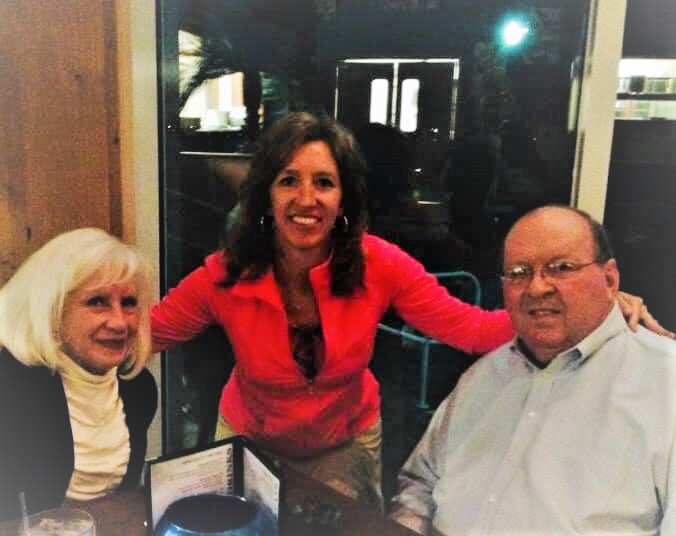
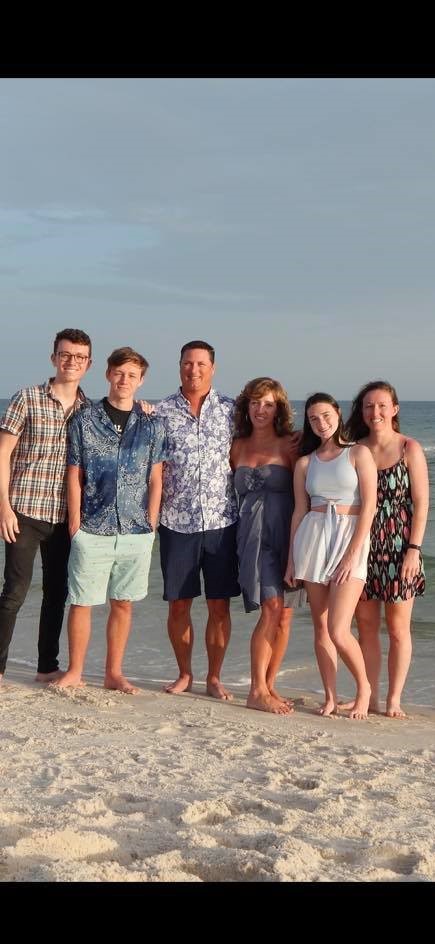
Angela’s husband), Angela, Ellie Yeatts, and granddaughter Lauren Bell.
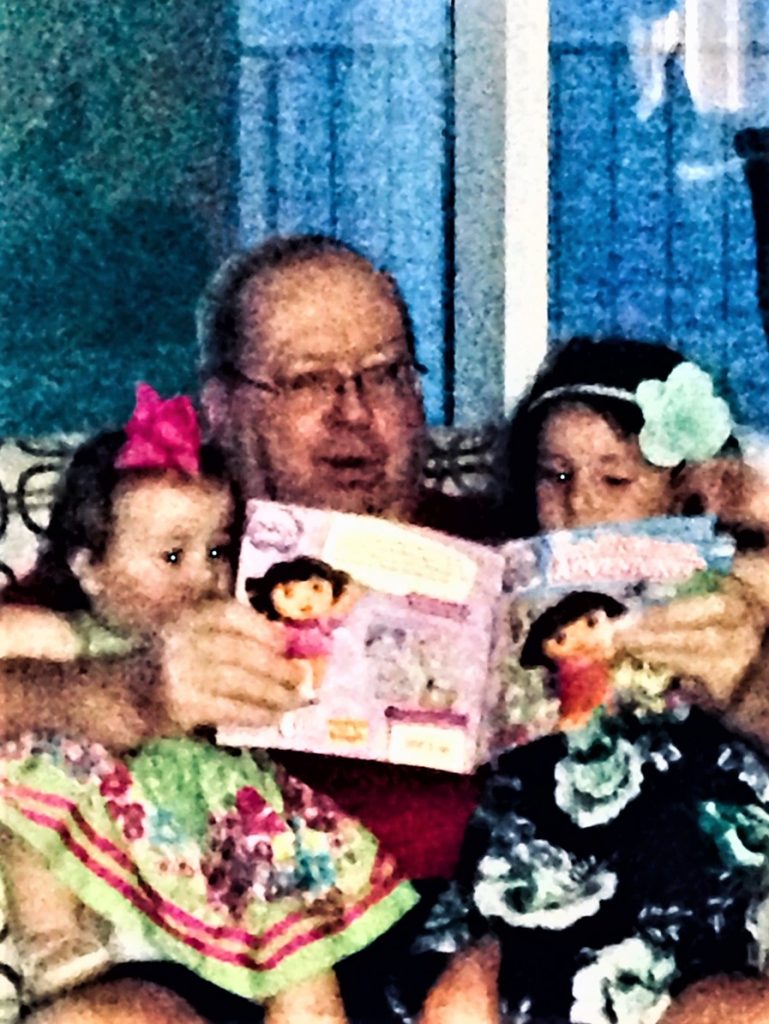
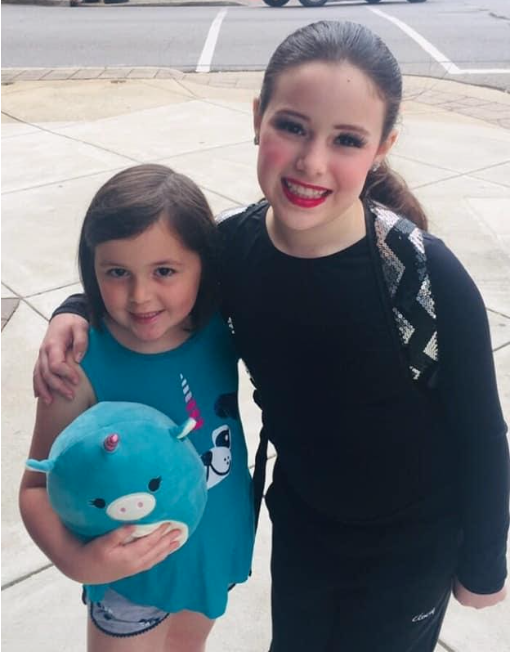
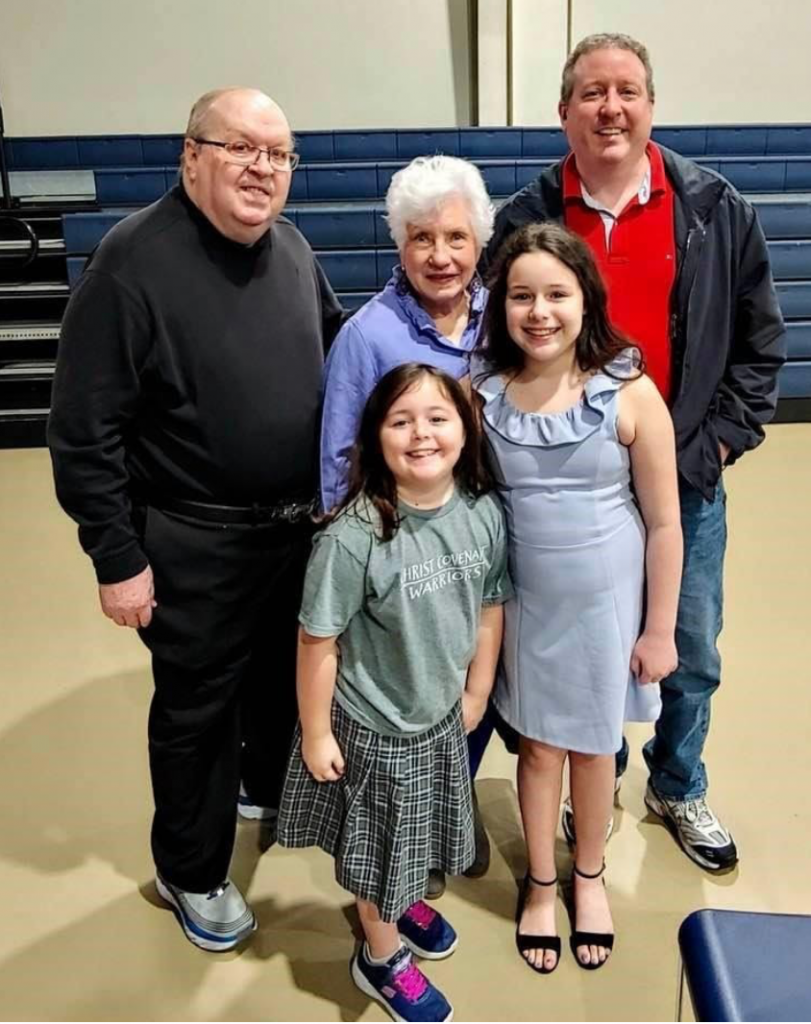
Brown: Do you have a favorite quote? What is it and why is it your favorite quote?
Byrd: I have a few but the one that I used most often with students and more recently with my grand girls is “Life will deal you some B’s and C’s.” This is applied when they ask you why they didn’t get an A!
Brown: What is something everyone should do once in their life?
Byrd: I guess cruise the North Sea. We had the opportunity with our dear friends to cruise from London to New York. The roughness of 30 feet waves, dodging icebergs, and cruising over the downed Titanic, is a once-in-a-lifetime experience.


Brown: What is your favorite way to waste time?
Byrd: Everyone tells me it is when I watch TV, but I still enjoy it so much. Sunday afternoon football games, old westerns, politicians going after each other. I love it but in the grand scheme, it probably is a waste of time.
Brown: What is the most useful thing that you own?
Byrd: My I-phone. The technology is amazing! You can keep up with world and local news, take a picture and send it, look up anything, listen to music, set a wake-up alarm, play games, check stocks, do checking, interact on Facebook, and make calls all on one instrument. Amazing!
Brown: What is the best and worst thing about getting old?
Byrd: Well the best thing about getting old is when you consider the alternative. The older you are, the more respect (or pity) you get, along with more discounts and preferred parking. Just a pleasure to do what you want, instead of a job schedule dictating your activity.
The bad, well we reap all the sequelae of abusing our bodies all our lives. Weight gain and diseases that go along with it. Our knees and hips show results of all the 5K’s, 10K’s and marathons which were cool at the time. This is on top of the other deteriorations. It is often said that getting old is not for sissies.
Brown: What has been your routine since retirement?
Byrd: Well, somewhat boring. Three mornings a week, I exercise for 40 minutes just to keep everything moving. More time for family. Naps for the first time in seventy-five years! I remember my mother had to threaten me to take a nap when I was a kid. No more! Watch some TV to try and keep up with political activities. Travel when the body permits. Hobbies I engaged mostly in is coin collecting and over my life, I have attempted to play guitar many times . . . not there yet.
Brown: To quote Katherine Meadowcroft, Cultural activist, and writer, “What one leaves behind is the quality of one’s life, the summation of the choices and actions one makes this life, our spiritual and moral values.” What is your legacy?
Byrd: All of my life, I have wanted to make a difference. I entered the profession of pharmacy hoping to leave it better than when I entered it.
Some students and faculty acknowledged that I created a pathway for their success.
Teaching is a profession where you can have a profound impact on a student’s life. It has been very rewarding. I have no regrets.
Bonnie Brown is a retired staff member of the University of Mississippi. She most recently served as Mentoring Coordinator for the Ole Miss Women’s Council for Philanthropy. For questions or comments, email her at bbrown@olemiss.edu.




























